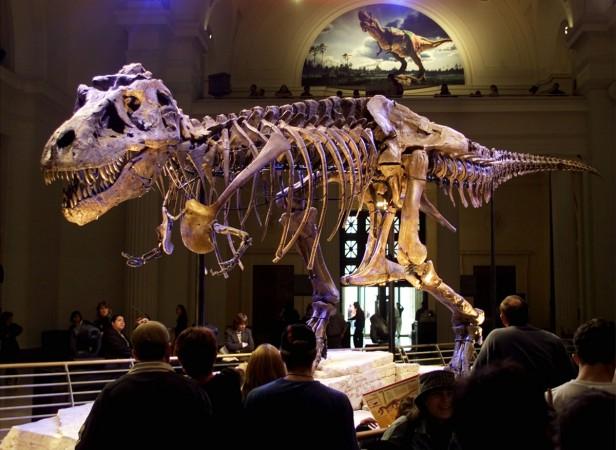
A new fossil of an almost intact juvenile T-Rex skull has been unearthed in what researchers are calling a one in 100 million find. Juvenile T-Rex fossils are rare and finding one preserved so well is like hitting the dinosaur jackpot.
The remains were uncovered in the Hell's Creek region in Montana, a spot that is full of dinosaur remains, notes a report by LiveScience, but finding a juvenile of the fearsome predator is not common. In fact, the report notes that in over 100 years, fewer than five have been found that are "decently complete juvenile T. rexes," said Kyle Atkins-Weltman, of the Biodiversity Institute and Natural History Museum at Kansas University, part of the study.
Of the baby dinos found, "this is probably the most preserved and most complete," Atkins-Weltman explains. "This is a 1-in-100-million specimen."
On how the specimen managed to stay intact after all these years, David Burnham, a preparator of vertebrate paleontology at the Biodiversity Institute explained that animals at Hell's creek most likely perished in a "quick, cataclysmic event". "The storms were huge because the temperatures were warmer," he added.
Apart from the young T-Rex, the team also found a nearly complete turtle, chunks of fish as well as other dinosaurs, and pieces of other dinosaurs, notes the report.
Tyrannosaurus Rex or T-Rex was an apex predator that lived in the last 2 million years of the Cretaceous period –67 to 65 million years back. This Hell's Creek specimen found by researchers has been dated to about 67 million years back. This specimen "would have been a pretty young animal, a young juvenile," Atkins-Weltman said. Adding that it was 5.1 meters long and larger than the last juvenile that was found in the region which was estimated to about 3 years of age. This one also happens to be smaller than an 11-year old also found here.
"We would suspect [it would have been] maybe 6 to 7 years old, possibly 8," Atkins-Weltman said. These creatures grew fast, notes the report. At peak growth, a T-Rex baby would be gaining between half a kilo to about 1.3 kg a day. By the time they are 4, they would get to the size of some of the largest land predators roaming the Earth today, "It's literally hard to fathom an animal growing this fast because there's really nothing quite like it in the modern world," explained Atkins-Weltman.
Excavation in the site is ongoing and the rest of the specimen will soon be unearthed, notes the report.
















